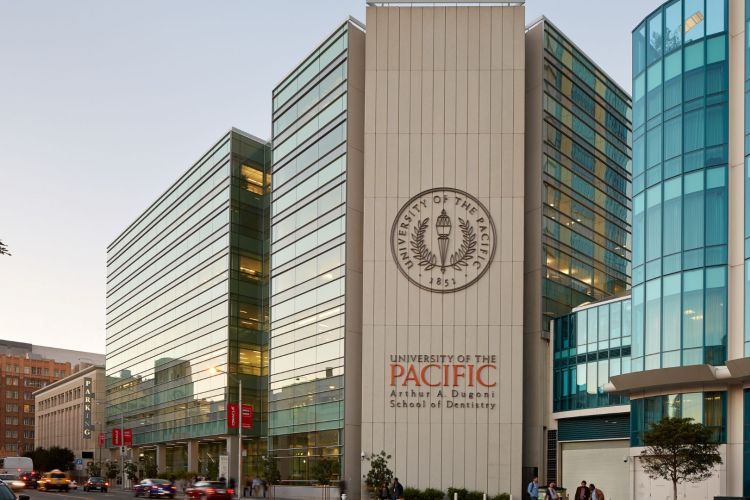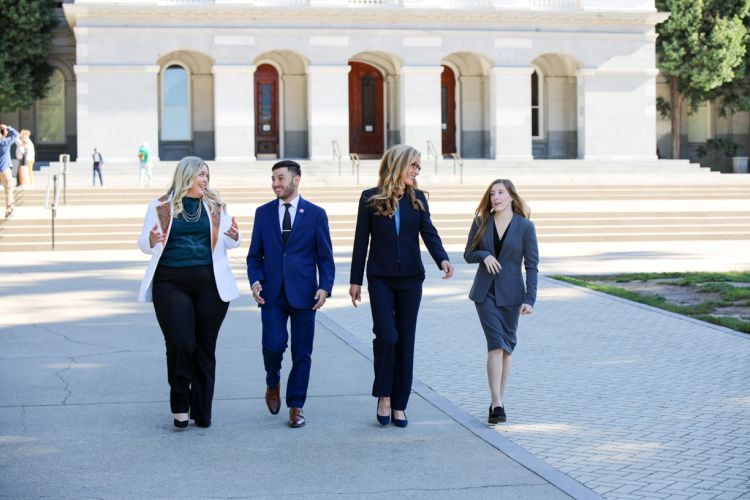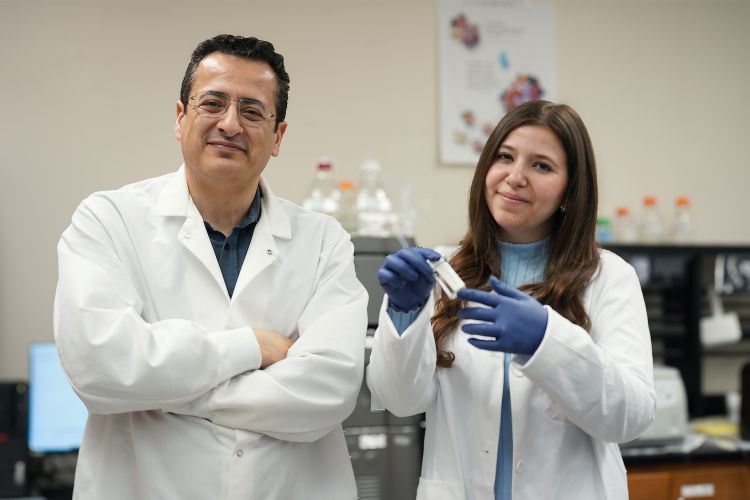Breadcrumb
Pacific moves to 100% renewable electricity on San Francisco Campus

University of the Pacific is deepening its commitment to sustainable practices across its campuses this year, starting with a shift to using 100% renewable electricity on the San Francisco Campus.
A majority of the power generated will derive from hydroelectric and solar as well as geothermal and wind. Pacific worked with CleanPowerSF, a local clean energy provider, to make the transition.
"Renewable electricity contributes to a healthier environment and therefore healthier people. It contributes to Pacific's sustainability goals, and it makes us a leader in showing that we're modeling using electricity from renewable sources,” said Sustainability Director Jessica Bilecki. "By sourcing electricity from renewables, we’re reducing our greenhouse gas emissions, and increasing our future resilience for when fossil fuels aren't as readily available.”
In addition to the renewable electricity initiatives, Pacific is expanding its infrastructure to support green transportation. A new dual-port electric vehicle charging station is slated for the Sacramento Campus this spring. The station will provide much-needed charging access for commuters and Pacific’s Zipcar program.
Zipcar allows students without a car to rent an electric vehicle through an app for hourly or daily use on the Stockton and Sacramento campuses.
An energy audit was completed last year across Pacific’s three campuses in Stockton, Sacramento and San Francisco, providing data the Office of Sustainability and Facilities will use for long-term strategic planning to identify energy reduction opportunities with the most impact. Opportunities include implementing LED lighting across its campuses, with a focus on upgrading to energy-efficient systems in all buildings. Outdoor lighting has already been fully converted to LED, this would complete the transition in all Pacific facilities.
The data will also inform ongoing efforts of earning a STARS Platinum rating by 2030 from the Sustainability Tracking, Assessment & Rating System (STARS), a global sustainability performance metric. This designation would recognize the university as a top performer in sustainability across all areas of campus life, academics and operations from energy use to waste reduction.
Part of the continuing work to increase awareness about sustainability will be celebrating Sustainability Month at Pacific in April. This month-long observance will include events geared toward educating and inspiring the Pacific community to continue working toward a greener, more sustainable future. Kicking off the month will be the student run 13th Annual Green Fashion Show April 4.
Those interested in getting involved in the show as a designer, planning committee member, emcee or judge can apply on the Call for Participants form by February 10.
Starting fall 2025, Pacific will offer a Bachelor of Science in Sustainability degree. The interdisciplinary program will prime students to tackle environmental and social challenges and help meet the growing demand for graduates with a sustainability background across many disciplines.
Sustainability has been a central priority for President Christopher Callahan since 2020, with the aim of positioning Pacific as one of the nation’s leaders in sustainability.
"Sustainability is integrated into our curriculum, operations and campus culture," the president said. "We’re excited to build on the momentum of our ongoing efforts, including the introduction of the sustainability major and the expansion of using renewable energy on campus."
Other sustainability initiatives at Pacific include being named to the Princeton Review Guide to Green Colleges, becoming ranked No. 2 in the nation among private institutions for generating electricity from onsite renewables and using 100% non-potable water to irrigate the Stockton Campus.





